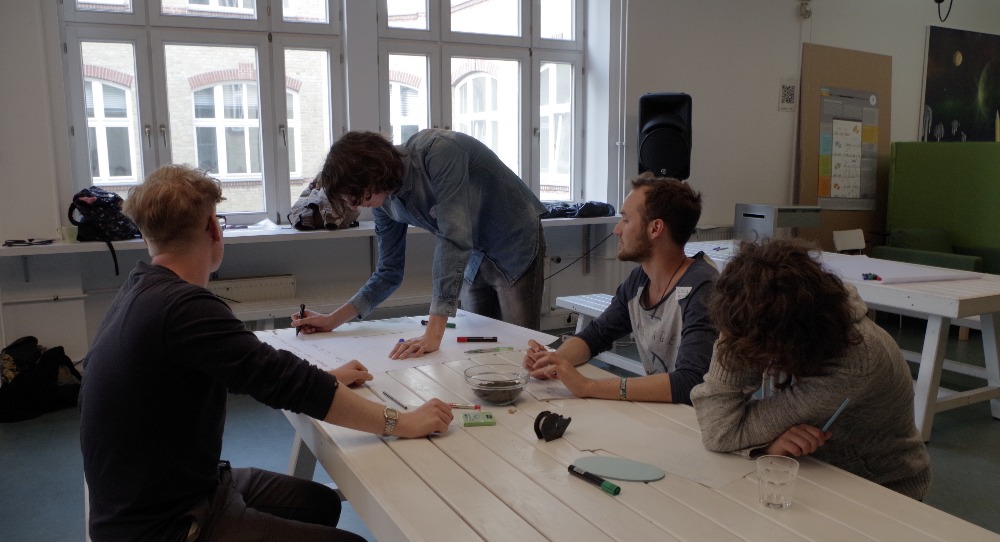Humboldt-Scholarship
Bachelors & Masters
2015-16 Humboldt’s Footprint 2.0
For the third time, 17 Bachelor and Master Students of the Departments of European Ethnology, Philosophy, Geography, Agricultural Economics and Economics were funded by Stiftung Humboldt-Universität in 2015-16 to perform joint small research projects on the larger topic of ‘Humboldt’s footprint’.

The aim of this research group was to discuss and investigate notions of sustainability centering around knowledge using the example of an interdisciplinary work space such as the IRI THESys. Starting from ideas and concepts in the successful lecture series ‘Studium Oecologicum’ (a study program discussing topics on sustainability initiated in the summer term 2015), the students’ research group focused on three major aspects in the light of sustainability: forms of generating knowledge in an interdisciplinary work space, forms of knowledge transfer and forms of knowledge maintenance and management. Questions that played an important role were: How does interdisciplinarity contribute to knowledge production? What different forms of knowledge transfer exist at the Humboldt-Universität, not only between students and lecturers, but also among researchers? How are research results administrated and how is knowledge documented in times of digital media? The students examined those questions at IRI THESys itself and subsequently made their results available to the public in form of a new series of student papers. Read it in German here: Schriftenreihe des Studium Oecologicum
The project group continued last year’s pilot research at the Geography Department of Humboldt University. It aimed at showing potential savings in resource consumption at the university. The Geography Department was chosen for a pilot project to make the flow of resources at the university more visible and transparent for everybody. Whereas in 2014-2015, the project focused primarily on the quantification and consumption of resources, in this year, the academic staff and students of the Department developed projects to find saving potentials based on the data acquired last year. The project’s overall long-term objective was to design a catalogue and corresponding guidelines for resource saving measures for the university. See the final poster (in German) here: Transparentes Institut 2.0
The research group investigated eating and drinking within the university’s daily life and questioned to which extent institutional food service are sustainable. Starting with an explorative access to their research field, the students looked at the university’s campus regarding procurement, preparation, and consumption of food. This was followed by transdisciplinary approaches using qualitative and quantitative methods to raise, handle and communicate new questions. Instead of appreciating and indoctrinating in a normative way on what is sustainable and what is not, the students mainly challenged a consumer-driven understanding of individuals on sustainability. Their research was also created into a public exhibition. See final poster (in German) here: Wie viel Wasser steckt in einem ‘Kaffee Fair’ der Berliner Mensen?


